The Roundup Top Ten for April 16, 2021

This Much is Clear: Derek Chauvin’s Trial Won’t Change Policing in Americaby Simon BaltoA historian of policing warns that, while many hope for a guilty verdict, that result, by identifying and punishing "bad" policing, may effectively render legitimate forms of violence and abuse that are historially part of policing in minority communities. |
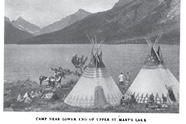
Return the National Parks to the Tribesby David Treuer"The idea of a virgin American wilderness—an Eden untouched by humans and devoid of sin—is an illusion" that has hidden the forced removal of Native people from the lands converted to national parks. Native people should tend and protect the land again. |
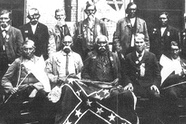
My Ancestors Were Enslaved—But Their Freedom Came at a Price for Othersby Alaina E. RobertsHistorian Alaina Roberts' work grew out of a family history in which her ancestors were brought to Indian Territory as slaves of Cherokee masters expelled from the southeast, then became landowners as the government erased tribal control of land. |

Left Behind: The Trouble with Euphemismby Nancy IsenbergA historian of white rural poverty says that the cultural phenomenon of JD Vance's book "Hillbilly Elegy" is just the latest deployment of the "left behind" euphemism to obscure the nature of poverty in the United States. The rural poor are and have been part and parcel of the American economic order. |
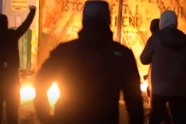
Why the Hope for Peace is Waning in Northern Irelandby James Waller"The Troubles, the decades-long Catholic uprising against British rule starting in the 1960s, began with Catholic frustration over a government that would not leave. If widespread violence returns, it will be because of Protestant frustration over a government that would not stay." |

A Once-in-a-Century Crisis Can Help Educate Doctorsby Molly WorthenThe COVID-19 pandemic has offered valuable lessons on the necessity of humanistic education in the training of medical professionals. |

Trump, Defying Custom, Hasn’t Given the National Archives Rally Speech Recordsby Shannon Bow O'Brien"Until President Trump, there have been no missing public speeches in the permanent collection. By removing these speeches, Trump is creating a false perception of his presidency, making it look more serious and traditional." |
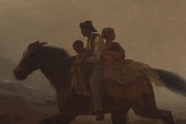
Stacey Abrams’s Fight against Voter Suppression Dates Back to the Revolutionby Karen Cook Bell"The roots of Black women’s activism can be traced back to the Revolutionary Era, when thousands of Black women protested with their feet and ran away from their enslavers." This act would shape the demands of radical Black politics in the ensuing decades. |
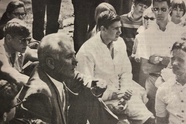
"Where Perversion is Taught": The Untold History of a Gay Rights Demonstration at Bucks County Community College in 1968by Marc SteinA student protest at Bucks County (PA) Community College in 1968, sparked by the college's decision to block a speech by gay rights advocate Richard Leitsch, should be recognized as a key event in the growing movement for gay liberation. |
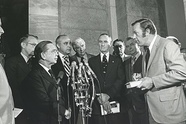
The Media will be Key to Overcoming a Senate Filibuster on Voting Rightsby Donald A. Ritchie"From the Boston Massacre to Watergate, the power of the media became manifest whenever editors and reporters, convinced of the seriousness of their cause, kept a story alive until they forced people to pay attention." TV journalist Roger Mudd kept the story of the Senate's filibuster of the Civil Rights Act in the public eye. |